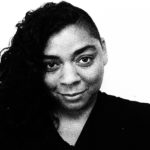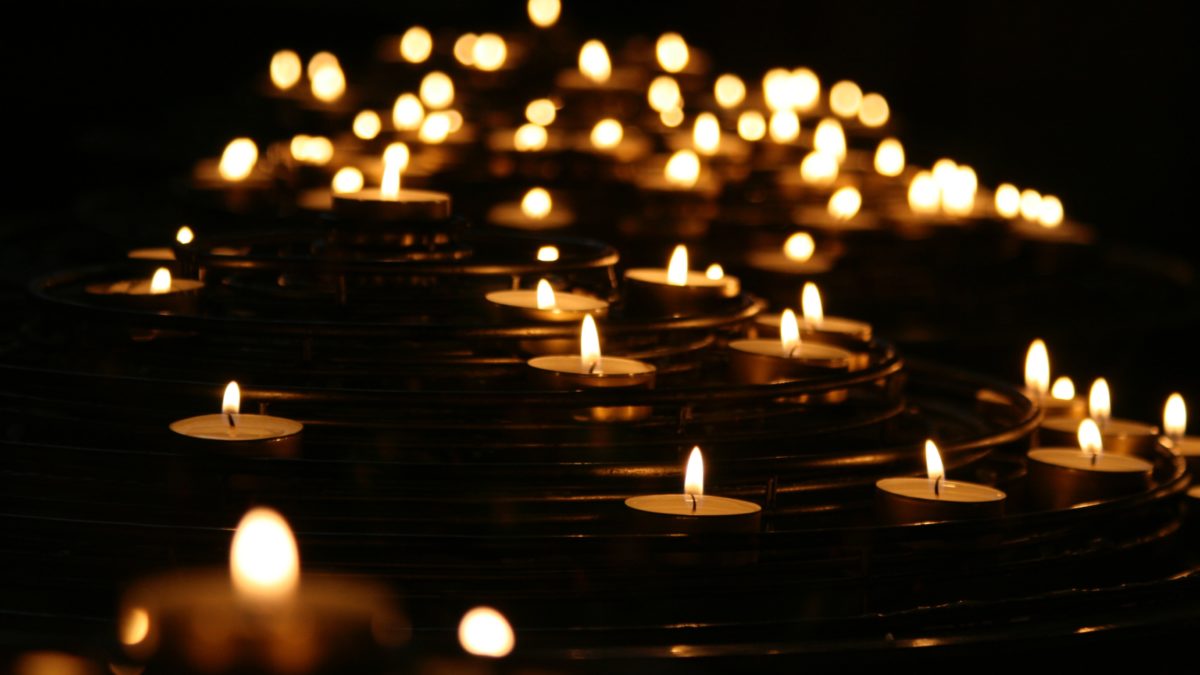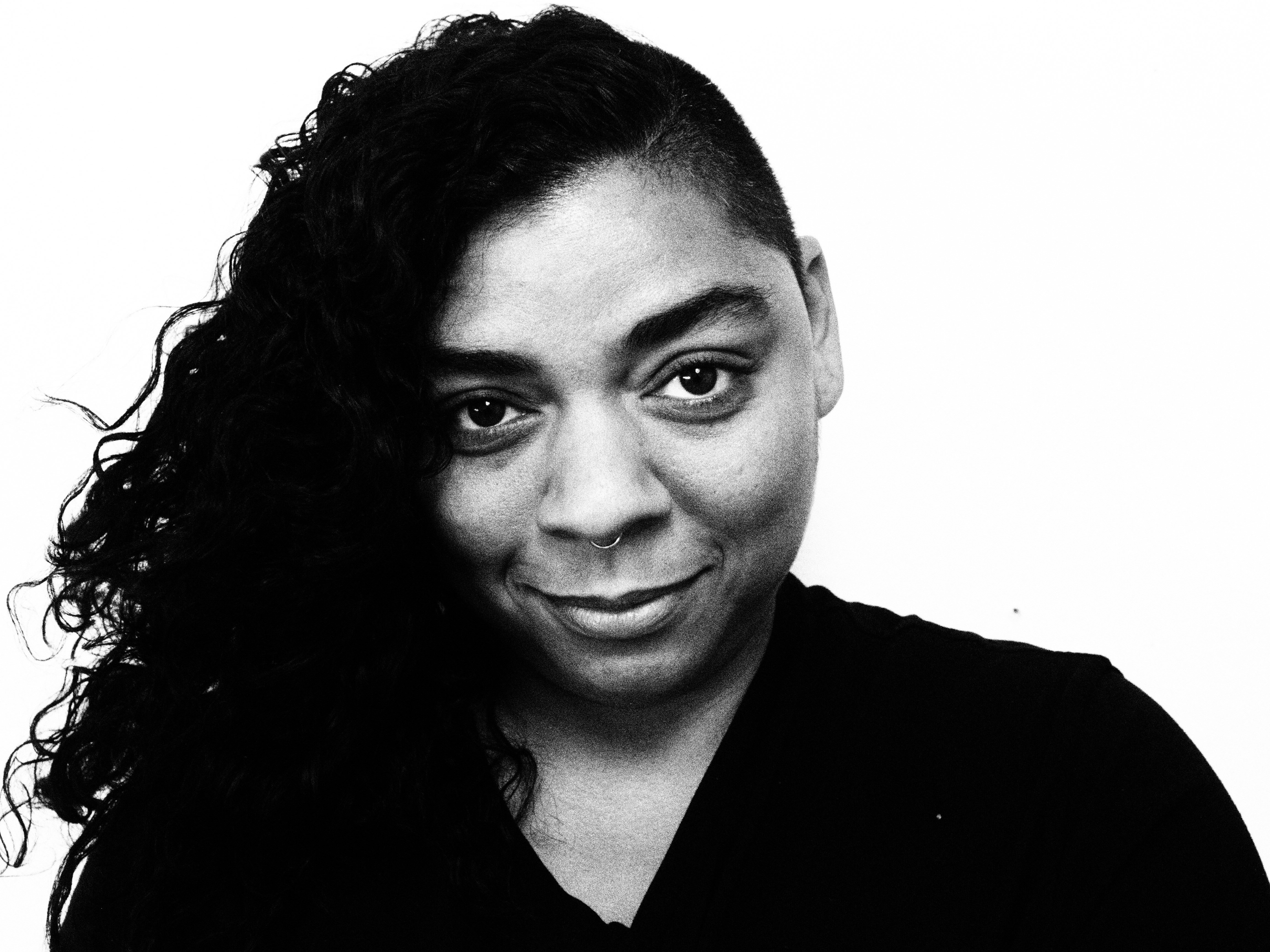Four years had gone by since I’d last seen my legendary Grandma Erlene. She had begun a slow but steady decline after hitting her head during a fall at home and when lucid and alive, she had been famous in my home territory of middle Tennessee for her cooking, her unconditional love and helping to grow the Riverside Seventh Day Adventist church of Hendersonville. I’ve never been religious by a long shot but she inspired confidence in me and urged me constantly to know my worth, to never settle for less and to not suffer fools. I often wondered what she would have done if she’d known I am trans. I frequently think about how much more time I might have had with her if being transgender was more normalized.
Grandma might have doted on me more than the other grandbabies (I’m the first born) but that was because boys run strong in my family tree. Perhaps she saw me as the one girl, the one anomaly—as one of my uncles put it—who could make a difference in the wake of what she referred to in our brood as “knucklehead boys.”
I wasn’t the girl she imagined me to be and I never got to tell her that before she died or how much I took her lessons in love, self-respect and dedication to family (chosen or blood) to heart. I chose to not tell Grandma Erlene that I was gay or how I felt when I realized my nonbinary transness. Although I know she loved me, there were plenty of reasons why I could make peace with that.
On my wedding day when I married my first partner, someone mentioned at the table that Ellen DeGeneres had come out as gay. Ellen was my grandma’s favorite daytime television host and the news almost gave her a heart attack. It was too much for her Seventh Day Adventist Bible Belt customs to comprehend. There was also the time my cousin Kim came out as a lesbian and then married her partner of several years. Grandma would not come to the wedding. She still spent lots of time with Kim and asked lots of questions about lesbianism but made it clear that her religious sentiments took precedence. Cousin Kim still came to Grandma’s funeral and so did I.
It was paramount to me that I pay my respects. Grandma Erlene had flown out not once but twice to see me married. After I escaped an abusive marriage of seven years, Grandma had talked with me about my then-second fiancé who was helping to raise my son from the first marriage. I think she heard the difference in my voice and the voice of my kid who was six at the time. She heard the love in our voices—love and healing and she flew out without question. My partner of now eight happy years and I were just “baby gays” then, but Grandma and the rest of my family could tell that there was something healthy, solid and special about what we had and still have. I’m also pretty sure that even though we were not out to most of our family those not in the know grasped that there was something different about us but whatever that difference was, they decided it was good.
In the year leading up to Grandma Erlene’s departure, I had ached to see her and the rest of my family but had just started a new job at the local community radio station the same time an anti-trans administration took office threatening to roll back health care and workplace protections for trans people. After decades of consideration, playing with gender and exploring sexuality and mutualism in my relationships, I decided I should immediately start jumping through the hoops of medical transitioning before my rights were stripped away completely. It meant that my life for the next two years (and that of my partner who was coming out at the same time) would not include travel time to Tennessee. It took a year of psychological meetings, doctor visits and appointments with specialists before I even got to the part where I received a time frame for surgery.
Three months after that I was given a date, and in 10 months I underwent three operations. Each surgery was exhausting and took months to return, even in a basic way, to where my endurance levels were before. Then there was the time it’s taken me to learn to move in a body that was brand new to me, all over again. There’s a very special romance that doesn’t get talked about enough, in regards to loving one’s body after gender-affirming surgery. To finally be able to have healthy conversations with all of one’s moving parts without interference and to finally feel whole. It is almost like having a continual date with yourself but one in which the conversation is fluid and never ends.
Even though I didn’t have the guidebook my cishet friends and family had growing up, I knew who I was.
There’s a flawed portrayal of transgender people and trans families that it’s a hip lifestyle choice. A kind of easily edible identity politic that is present only to give moral superiority to straight people’s or straight-passing people’s agendas and feelings.
In narratives about trans people, including nonbinary people, there is this idea that we are sort of like jack-in-the-boxes. Like we spring up out of a closet or dark interior from nowhere and with no home to speak of. It feeds dangerously unscientific fears about the human condition, sparks fears about trans people being unstable or dangerous and breeds ideas that the world is entitled to trans people and that trans people should be grateful for whatever attention we get. You only need to look at the current bathroom bills still being fought or the current litigation on banning trans people from the military and other workplaces and see a similarity to the fears of black people that gave rise to lynchings, redlining and segregation.
People who are usually writing these narratives are doing so from an egotistical, fragile and ignorant place. In other more vapid examples of representation for trans people the narrators are straight and want to “queer” their heterosexuality—but you can’t be straight and queer. In other collectives, the focus of other writers to call trans people to action to tell our stories zeroes in too much on what’s new about us. As if in order for us to thrive, we have to be relevant to the mainstream. We have to accept whatever representation options come along and assimilate because, according to these well-meaning narratives, we have no one else.
But that narrative is wrong. We all come from somewhere. In some cases, we’re surrounded by a variety of support systems curated and uncurated. We’re everywhere, coast to coast and around the world. We were born into families, have created chosen ones and quite a few of us are raising families of our own. In my case, even though I didn’t have the guidebook my cishet friends and family had growing up, I knew who I was. I did not have all the answers to questions like how to integrate having a family and being trans, but I was guided in part by my familial roots. I was raised to be a humanist by Grandma and the rest of my family and acknowledge that human beings have a right to love and respect. She taught me that honoring ancestry and serving through example was central to being connected to oneself and the universe. As it stands today, I don’t know if I’d come out to Grandma Erlene whether we’d have ever seen eye to eye but I’m pretty sure how we showed love would not have changed.
On my last night in Tennessee for Grandma’s funeral, before I flew back with my partner to Portland, Oregon, we had dinner with my family. I’d learned during this trip that I had at least a couple sets of lesbian couples in the family and two cousins who are transgender on the west coast. They are about my kids’ age and I couldn’t help but marvel and breathe a big sigh as if a weight was lifted. I was thinking back to my early days before we had much representation; before we began reclaiming our trans history en masse. I wasn’t always talking to certain members of my family. It has been choppy but through Grandma Erlene, even in her passing, we were reminded that all we have is indeed each other and that if we are able to make room for that, we should.
 Zeloszelos Marchandt has been called a tapestry of an individual. They previously worked as the Evening News and Public Affairs Director for KBOO 90.7 FM for the last two years covering local, state, national, international news, art and culture and now study forensic and mortuary science. They were also the co-host of the show QTPOC Talk for nearly two years tackling issues of race and gender intersections for queer and transgender people of color. They’ve curated programming, produced, photographed and written for several years on a variety of topics that include art infrastructure and sustainability, ecology, public policy, queer and transgender rights, food culture, history and equality. Their work has appeared in PQ Monthly, Willamette Week, NW Kids Magazine, Portland Family Magazine, The Drainage and Travel Portland. They’ve guested on other podcasts like Chocolate and Caramel and performed their food- and literature-driven multimedia performances through the Tender Table series and Literary Arts. They reside in the Portland metro area of Oregon on a tiny farm in a tiny house.
Zeloszelos Marchandt has been called a tapestry of an individual. They previously worked as the Evening News and Public Affairs Director for KBOO 90.7 FM for the last two years covering local, state, national, international news, art and culture and now study forensic and mortuary science. They were also the co-host of the show QTPOC Talk for nearly two years tackling issues of race and gender intersections for queer and transgender people of color. They’ve curated programming, produced, photographed and written for several years on a variety of topics that include art infrastructure and sustainability, ecology, public policy, queer and transgender rights, food culture, history and equality. Their work has appeared in PQ Monthly, Willamette Week, NW Kids Magazine, Portland Family Magazine, The Drainage and Travel Portland. They’ve guested on other podcasts like Chocolate and Caramel and performed their food- and literature-driven multimedia performances through the Tender Table series and Literary Arts. They reside in the Portland metro area of Oregon on a tiny farm in a tiny house.

































